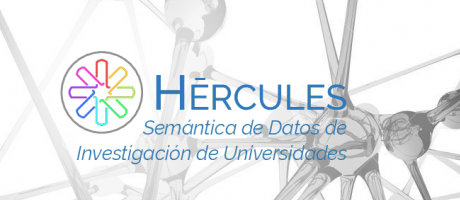11 posts found
DCAT-AP-ES: A step forward in open data interoperability
Context and need for an update
Data is a key resource in the digital transformation of public administrations. Ensuring its access, interoperability and reuse is fundamental to improve transparency, foster innovation and enable the development of efficient public services centered on citizens.
In th…
How to build a citizen science initiative considering open data from the start
Citizen participation in the collection of scientific data promotes a more democratic science, by involving society in R+D+i processes and reinforcing accountability. In this sense, there are a variety of citizen science initiatives launched by entities such as CSIC, CENEAM or CREAF, among oth…
HealthDCAT-AP: The Standard That Connects Health Data to People
Data is the engine of innovation, and its transformative potential is reflected in all areas, especially in health. From faster diagnoses to personalized treatments to more effective public policies, the intelligent use of health information has the power to change lives in profound and meaningful w…
PET technologies: how to use protected data in a privacy-sensitive way
As organisations seek to harness the potential of data to make decisions, innovate and improve their services, a fundamental challenge arises: how can data collection and use be balanced with respect for privacy? PET technologies attempt to address this challenge. In this post, we will explore what…
New Year's resolution: Apply the UNE data specifications in your organisation
As tradition dictates, the end of the year is a good time to reflect on our goals and objectives for the new phase that begins after the chimes. In data, the start of a new year also provides opportunities to chart an interoperable and digital future that will enable the development of a robust data…
Application of the UNE 0081:2023 Specification for data quality evaluation
The new UNE 0081 Data Quality Assessment specification, focused on data as a product (datasets or databases), complements the UNE 0079 Data Quality Management specification, which we analyse in this article, and focuses on data quality management processes. Both standards 0079 and 008…
A common language to enable interoperability between open dataset catalogs
Open data plays a relevant role in technological development for many reasons. For example, it is a fundamental component in informed decision making, in process evaluation or even in driving technological innovation. Provided they are of the highest quality, up-to-date and ethically sound, data can…
The protection of personal data in the draft Data Governance Regulation (Data Governance Act)
Since the initial publication of the draft European Regulation on Data Governance, several steps have been taken during the procedure established for its approval, among which some reports of singular relevance stand out. With regard to the impact of the proposal on the right to the protection of pe…
Hercules-ASIO Initiative. Integration, publication and consultation of linked open research data.
The Hercules initiative was launched in November 2017, through an agreement between the University of Murcia and the Ministry of Economy, Industry and Competitiveness, with the aim of developing a Research Management System (RMS) based on semantic open data that offers a global view of the research…
Pubby and LODI, opening linked data to humans
An important part of the data which is published on the Semantic Web, where resources are identified by URIs, is stored within triple store databases. This data can only be accessed through SPARQL queries via a SPARQL endpoint.
Moreover, the URIs used, usually designed in a pattern, in most of the d…









